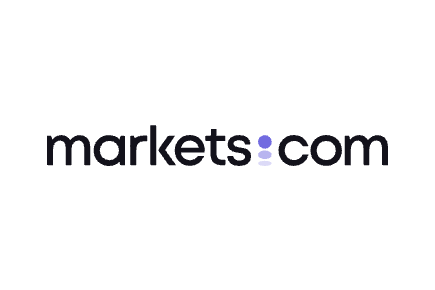How do you compare DEGIRO vs Markets.com? There are tables of data to compare, as displayed below, and we have provided additional comparisons of key factors, as shown below. However, determining which broker is better will ultimately depend a great deal on your perspective, what you want from your business partner, your trading style and your personal objectives.

Investing involves risks. You can lose (a part of) your deposit. We advise you to only invest in financial products which match your knowledge and experience.



CFDs are complex instruments and come with a high risk of losing money rapidly due to leverage. 80.4% of retail investor accounts lose money when trading CFDs with this provider. You should consider whether you understand how CFDs work and whether you can afford to take the high risk of losing your money.


DEGIRO, a Dutch company formed in 2013 and headquartered in Amsterdam, is primarily focused on the European market and on being a traditional stockbroker. Its parent, flatex AG, is a major stockbroker in Germany traded on the SDAX exchange. It owns a bank, and broadens DEGIRO’s customer base to 2 million+.
Markets.com opened its doors for business in 2008 and was acquired in 2018 by Playtech PLC, a FTSE 250 company traded on the London Stock Exchange. The firm has built a broad global presence in multiple jurisdictions and complies with a host of major regulators. The firm has succeeded in part due to its technology division, which has developed its Marketsx trading platform. The firm does not publish the size of its customer base.
DEGIRO does not have a minimum deposit amount, but it also has very limited deposit options, which restrict your deposits to a banking wire transfer. Markets.com has a more standard minimum deposit of 100 GBP, EUR or USD, but the firm supports a multitude of payment deposit methods. Deposits may also double if you wish to trade on the Marketsx platform.
DEGIRO has made a name for itself by being a low-cost provider across Europe. More importantly, fee levels do not vary by account, though its account structure is more related to how you might access various services from a bank. DEGIRO does not have an inactivity fee, and it does not charge for opening an account or for deposits or withdrawals.
Markets.com claims to have a very low fee structure, but its lower fee offering is only available to traders on its proprietary Marketsx platform. If you are an MT4 or MT5 user, then the fee levels can be average or above. Markets.com also imposes an inactivity fee after three months of dormancy, but there are no fees for deposits or withdrawals.
DEGIRO, due to its bank affiliation, European base and limited forex trading, offers limited leverage options. Retail traders may find little to no leverage based on account balances in a Trader account, while professional traders can get upwards of 300:1. Tight spreads, however, are the big draw for DEGIRO.
Markets.com is a global broker with subsidiaries set up in various jurisdictions to permit leverage offerings that may be prohibited in Europe by its regulators. Your ability to use leverage will depend on your country of legal residence. If you use the Marketsx trading platform, you may also access very tight spreads.
Both firms tout user-friendly proprietary trading systems for their respective customer bases, but in both cases, a new client will have to adapt to a different trading environment to access the best that these two firms have to offer. Markets.com is a traditional forex brokerage, however, and has chosen to support the very popular family of MetaTrader product offerings.
With DEGIRO, you may feel like you are dealing with a bank as accounts vary by the banking service offered. With Markets.com, you will be restricted to CFD trading of the more common forex pairs and other product instruments such as ETFs, indices and shares. However, you will also have access to a free demo account for practice sessions and fine-tuning your trading strategy.
DEGIRO does not offer forex trading, except for an options limited to professional traders. You will not find MT4 or MT5 with this broker. It has its own trading platform in the vein of a traditional stockbroker with fully developed features and complete functionality. DEGIRO has also won awards.
Markets.com, however, does provide retail forex trading and supports MT4 and MT5 offerings. It also has its own proprietary trading platform, which can provide access to a better trading experience due to lower fees and a broader product portfolio.
As a traditional stockbroker, DEGIRO offers trading in shares, ETFs, leveraged products, bonds, options and futures. Participation in the cryptocurrency market is limited to what it terms crypto trackers – ETF-type funds comprising the most popular cryptocurrencies on the market.
Markets.com offers CFD trading in forex, stocks, ETFs, indices, cryptocurrencies, bonds, commodities and blended funds. It also advertises a portfolio offering of 2,100+ instruments, but access may be dependent upon your legal jurisdiction and which trading platform you have selected.
A demo account is standard for an account opening with Markets.com, but DEGIRO does not presently offer one. Seasoned traders may not find this an impediment, but beginners will definitely have an issue.
Both of these brokers come highly rated, but each has a different way of approaching its role. DEGIRO focuses on stocks, while Markets.com is a forex broker plus. If you are outside Europe, then Markets.com may be more available, but if you want lower fees and are in Europe, then DEGIRO might be better suited for you. Both are highly regulated and secure, but DEGIRO focuses more on stocks, while Markets.com will appeal to the forex trader at heart.